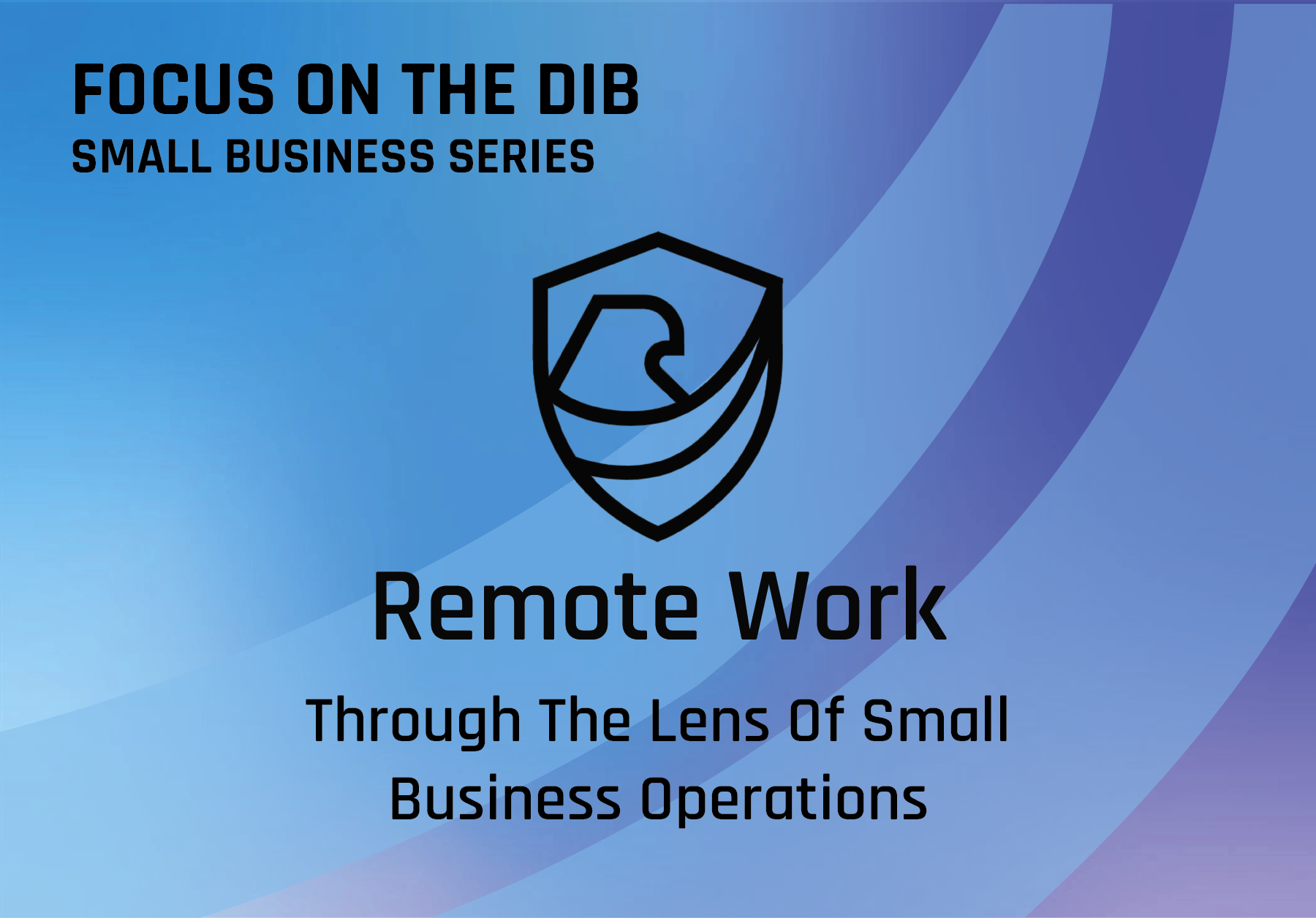There are plenty of up-sides to remote work. Allowing remote work may be a significant attraction for qualified candidates, and a business owner may be able to cast a hiring net much wider since commute time is not something that needs to be considered.
Remote work in a small business setting brings challenges in both productivity and security. On the productivity side, communication can suffer, as small businesses often rely on informal, face-to-face interactions. In a remote environment, this can lead to misunderstandings, missed messages, and unclear instructions or expectations.
Balancing Oversight and Productivity: Challenges of Remote Work for Small Businesses
Monitoring employee productivity in a remote environment can be challenging for small businesses, as they often struggle to find the right balance between effective oversight and avoiding micromanagement. Additionally, home-based work presents unique distractions that are less common in an office setting.
Maintaining a strong team dynamic and company culture is also more difficult without face-to-face interactions, which can negatively affect employee morale, teamwork, and job satisfaction. The informal interactions that foster team bonding and collaborative problem-solving become less frequent and spontaneous in a remote work setup.
Furthermore, employees may find it hard to establish clear boundaries between work and personal life, leading to issues of either overworking or underworking, which can impact both mental health and job performance.
Even if these challenges are addressed and remote work still aligns with the small business’s mission, additional hurdles remain. Limited resources may prevent small businesses from investing in advanced remote work technologies, leading to inadequate hardware, software, or internet connectivity that can hinder productivity. Ensuring cybersecurity and data privacy in a decentralized work environment is another significant concern.
Onboarding new employees and providing ongoing training are also more complex in a remote setting, where replicating the hands-on, collaborative learning experiences of a physical workspace is difficult.
Lastly, in small businesses where resources are often more centralized or less systematically organized, remote workers may face challenges accessing the information or physical resources they need to perform their tasks effectively.
A wide range of tools is available to small businesses, with options varying based on budget and specific needs. However, it’s crucial to keep security top of mind when implementing any of these solutions.
Communication Tools
- Microsoft Teams and Teams Gov: As part of the Microsoft 365 suite, Teams offers integrated chat, video conferencing, and file storage, enabling smooth communication and collaboration.
- Slack: This instant messaging platform allows for the creation of channels dedicated to different topics or teams, supports direct messaging, and integrates with numerous other work applications.
- Zoom and Zoom Gov: Popular for video conferencing, Zoom provides features like screen sharing, meeting recording, and breakout rooms.
Project Management and Collaboration Tools:
- Trello: A visual task management platform that employs boards, lists, and cards to organize tasks and projects. It’s particularly useful for tracking workflows and project progress.
- Asana: A project management tool designed to assist teams in organizing, tracking, and managing their work. It includes features like tasks, projects, conversations, and dashboards.
- Monday.com: Provides a customizable workflow management solution, allowing teams to create workflows tailored to their specific requirements.
File Sharing and Collaboration Tools
- OneDrive for Business: Developed by Microsoft, it’s a cloud storage solution that seamlessly integrates with Microsoft Office apps. Users can collaborate on files online and access them from anywhere12.
- Google Workspace (formerly G Suite): This suite includes popular tools like Gmail, Google Docs, Sheets, and Drive. It’s designed for real-time collaboration and efficient file storage34.
- Dropbox Business: A cloud storage solution offering file synchronization, personal cloud storage, and client software. It’s ideal for teams and businesses looking to securely store and share files.
Customer Relationship Management Tools
- HubSpot: A free CRM platform designed for small businesses. It includes marketing, sales, and service software to streamline customer interactions and improve business processes.
- Salesforce: A comprehensive suite of CRM applications covering sales, service, marketing, and other business functions. It’s widely used by organizations to manage customer relationships effectively.
- ERPs (Enterprise Resource Planning): While not specifically CRM tools, ERPs can serve as primary business applications. They integrate various business processes like finance, inventory, and human resources, providing a holistic view of operations.
Cybersecurity and VPN Services
- NordVPN or ExpressVPN: These VPN services help secure remote connections, particularly when employees access business resources from home or public Wi-Fi. While these VPNs are commonly used for personal or home access, small businesses might consider enterprise-level solutions based on their number of employees.
- Keeper or 1Password: These password management tools ensure secure and efficient sharing of credentials among team members.
Changes in Personnel HR and Payroll Management Tools
- NetChex: Streamlines payroll, benefits, and HR management for small businesses.
- BambooHR: Offers an online HR system for small and medium-sized businesses, focusing on talent acquisition, time tracking, and payroll.
Certainly, the selection of tools and their adherence to regulatory compliance is a critical consideration for small businesses, particularly in light of the types of data transmitted through cloud-based applications. When sharing FCI or CUI data, or exchanging ITAR or proprietary business information, choosing the appropriate technology and security solutions becomes a complex task.
In summary, while remote work offers significant advantages such as attracting qualified candidates and expanding the hiring pool beyond geographical constraints, it also presents challenges. These include potential issues with productivity and communication, as small businesses may struggle to maintain the informal, face-to-face interactions that are crucial for clarity and effective teamwork. Addressing these challenges is key to harnessing the benefits of remote work while ensuring smooth operations and secure practices.
Sentinel Blue is a managed security service provider (MSSP) that works daily with the small businesses tackling operational and security challenges designed to streamline secure architecture and IT environments, mitigate threats and implement incident response best practice.
